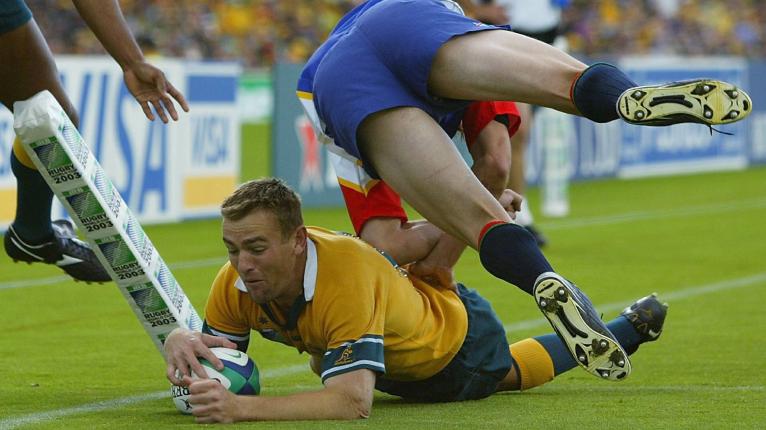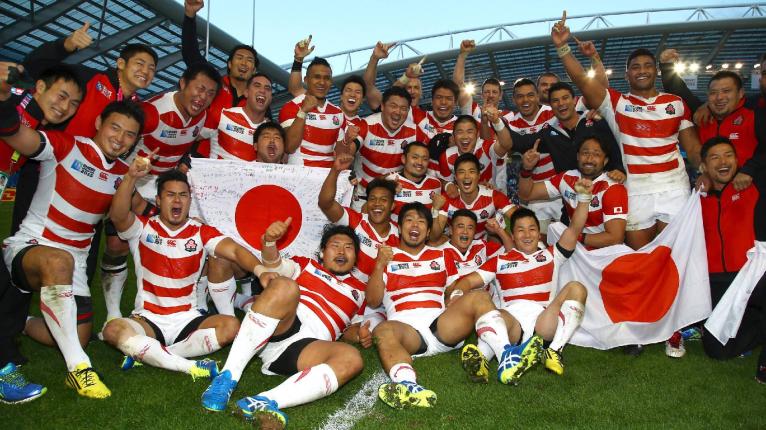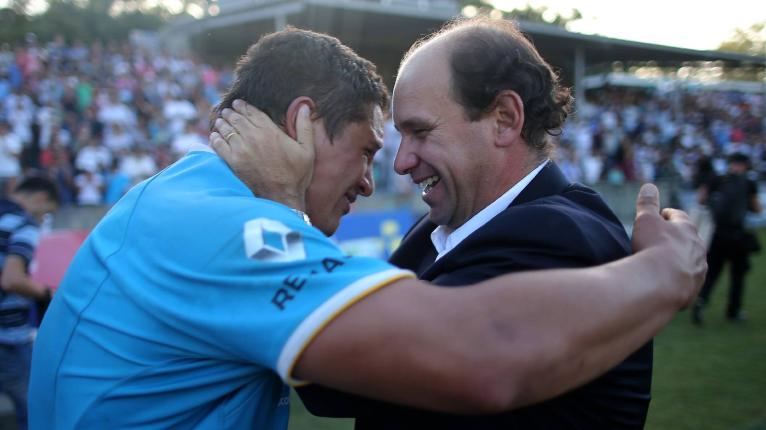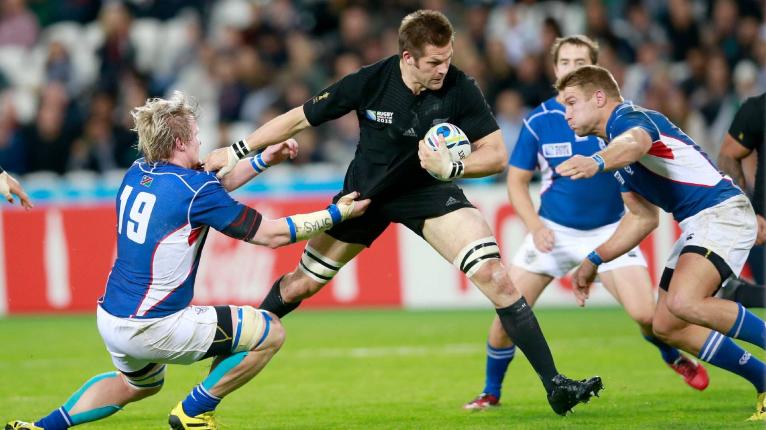From Uganda to the All Blacks: The problem facing Tier Two World Cup nations

Every World Cup presents lower-tier nations a chance to test themselves and prove their worth on an international platform against rugby powerhouses that they would never normally get the opportunity to play against.
Any game played against the likes of the All Blacks or England will go down as the pinnacle or highlight of the careers of those who ply their international trade for teams such as Namibia or Uruguay.
For these test sides, the privilege of playing some of the world’s best players on the greatest stage of them all is unparalleled, and it is what most players will have been working towards since they first picked up a rugby ball.
Understandably, these low-level tier two nations are almost always on the wrong side of the scoreline by the end of such fixtures.
Namibia have conceded 792 points against tier one nations in 12 World Cup matches, significantly overshadowing the 104 accumulative points they scored in those fixtures, while Uruguay have a woeful points difference of -395 against similar opposition from their three World Cup campaigns.

It’s obvious why these developing, largely amateur nations are on the receiving end of such hidings against world-class opposition who have fully-fledged, multi-million dollar professional club leagues to draw quality players from.
However, not all tier two teams suffer the same fate as that of Namibia, Uruguay, and probably Russia, who are also competing at this year’s World Cup in Japan.
Fiji, Japan and Georgia, for example, have all made strong cases to be included in the proposed 12-team World Rugby Nations Championship, which includes all 10 tier one nations.
Their claims to compete with and against the best sides on the planet on an annual basis comes as a result of not only outstanding coaching and intensive development of rugby over the course of the past decade or two, but also their constant exposure to quality tier two opponents, as well as the occasional fixture against a tier one team.
The competitiveness of those countries has been proven in recent history.
Fiji beat Wales to qualify for the 2007 World Cup quarter-finals, where they pushed South Africa to the brink of a monumental upset, defeated France in Paris for the first time ever last year, and claimed two scalps over Italy over the past five years.
Japan did what Fiji couldn’t and stunned the world with a shock 34-32 win over the Springboks at the last World Cup four years ago, and two years before that, claimed their first-ever win over Wales, albeit a depleted side due to that year’s Lions tour of Australia, before drawing with France in Paris in 2017.

Georgia, meanwhile, are yet to tip up a top-tier outfit, but have proven their worth within the tier two realm after being crowned champions of the Europe Rugby Championship 10 times in the last 12 years, and beating Pacific powerhouses Samoa and Tonga more often than not.
The fact that Fiji, Japan and Georgia are exposed to high-level sides, let alone overachieving against them, makes all of these nations better prepared for not just the World Cup set to take place in five months’ time, but better prepared for future World Cups and the Nations Championship.
However, it also brings into question the preparation that tier two nations on the lower end of the spectrum – Namibia, Uruguay and Russia, all of whom are also going to Japan in September – are undergoing in the lead-up to the World Cup in the four-year cycle beforehand.
Despite being labelled in the tier two category by World Rugby alongside teams that are challenging for a spot in the Nations Championship and eyeing quarter-final spots in the World Cup, opportunities against classier opposition for Namibia, Uruguay and Russia are sparse.
Russia, who last appeared at a World Cup in their debut tournament in 2011, haven’t played a tier one nation since their 68-22 thumping at the hands of Australia in Nelson, with the highest level of opposition in the most recent World Cup cycle being Europe Rugby Championship rivals Georgia, while Japan provided a one-off clash last year.
The same can be said of Uruguay, who last featured at the 2015 World Cup and haven’t faced off against a tier one side since their 60-3 loss to England in Manchester at that tournament.
Instead, yearly appearances in the Americas Rugby Championship have filled their international calendar, while rivals such as the USA and Canada – teams of which Uruguay have recorded multiple victories against in the past three years – have had the honour of playing Italy, Ireland and Scotland.

Russia will face Ireland and Scotland later this year, as well as Samoa and hosts Japan in a tough Pool A, and Uruguay have been tasked with Australia and Wales in Pool D, while challenges against the much better prepared Georgia and Fiji won’t be a lot easier.
With regular fixtures against tier three sides like Chile, Paraguay and Belgium in the years preceding the World Cup, there’s little chance for Russia or Uruguay to enhance their chances of obtaining a credible result against much more well versed opposition due to the unsubstantial quality of matches they’re dealt with leading into the tournament.
Namibia have had perhaps the worst preparation out of any team competing at this year’s World Cup in terms of the quality of their opposition.
Not only have they not faced a tier one nation since Argentina’s 64-19 hammering of them at the 2015 event in Leicester, but the four-time World Cup competitors have faced no side better than that of Uruguay between now and then.
Even Russia and Uruguay have had the chance to play ‘elite’ tier two nations like the USA and Japan, but Namibia have had Los Teros and World Cup rejects Romania as their premier fixtures over the last three years, sandwiched between a plethora of low-level African opposition including Uganda, Morocco and Tunisia.
The Welwitschias will be forced to utilise that African Gold Cup experience to take on the might of the All Blacks and Springboks in Tokyo and Toyota, respectively.
One can only hope those scorelines don’t blow out as badly as it has done in the past.

It’s a far cry from that of Japan, Fiji and Georgia, who, despite not being given regular clashes against tier one opponents, are still handed the chance to play at venues like Twickenham, Murrayfield and Principality Stadium from time to time, unlike some of their fellow tier two companions.
While Namibia, Uruguay and Russia will presumably proceed to get thumped in The Land of the Rising Sun, some obvious scheduling tweaks will need to be made by the start of the next World Cup in France in four years’ time.
Should the Nations Championship fail to launch, one can only hope that World Rugby’s San Francisco agreement, which included a 39 percent increase in tier one v tier two fixtures when agreed upon in 2017, will follow through, as World Cup contenders like Russia, Uruguay and Namibia – the latter two being regular tournament attendees – severely need the exposure to better opposition.
For now though, one can only hope for the best the Bears, the Welwitschias and Los Teros in Japan later this year.
2019 Rugby World Cup City Guide – Kamaishi:
































































